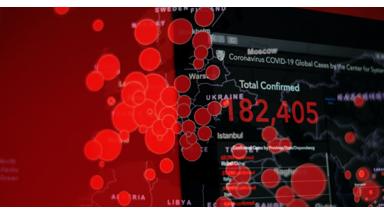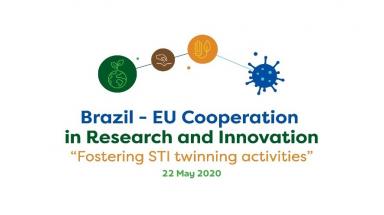2017-10-11
Brazilian public prosecutors and civil servants successfully conclude their mission on domestic violence in Europe
The mission was part of the project approved under the EU-Brazil Sector Dialogues Support Facility, within the Human Rights theme, resulting from high-level political dialogue. According to the counselor of the CNMP and coordinator of the National Justice and Public Security Strategy (ENASP), Valter Shuenquener, the aim of the mission was to comprehend what is being done in relation to gender violence in European countries: "This mission was inspired by the need to tackle domestic violence in Brazil. The country is currently not in a very “comfortable” position on this issue, and we need to create methodologies or solutions to improve the situation. Therefore, we have established this partnership with the European Union and the Sector Dialogues Support Facility”, he explained.
As reported by Sheunquener, the partnership with the Sector Dialogues and with the Delegation of the European Union to Brazil is very important. "The Head of the EU Delegation to Brazil, João Cravinho, has strongly defended this cause in our country and in the international scene. The Public Ministry has also participated in this effort, being a multilateral project. The main objective of these Dialogues is to establish a communication channel and exchange information between Brazil and EU countries", he said.
Shuenquener also revealed that the countries chosen for the mission - Lithuania, Italy and Portugal - were due to some peculiarities. Lithuania, for example, hosts the European Institute for Gender Equality (EIGE). Headquartered in Vilnius, EIGE is an EU agency working to make gender equality a reality in the EU and beyond and supports research studies related to data collection and best practices. Italy has developed a domestic violence database that is part of actions accomplished under the third Italian National Plan (NAP) on Women, Peace and Security. As for Lisbon, Shuenquener pointed out that "in the project we count with the expert Manuel Lisboa, who is a professor at the University of Lisbon and also coordinator of the National Observatory of Violence and Gender. In addition, Portugal also hosts the Portuguese Association for Victim Support (APAV)".
In Lisbon, the team composed by promoters who actively work on such issues, presented the Brazilian reality and received information regarding the most effective practices used in Portugal. On 22 October, the delegation visited APAV's facilities and met its president, João Lázaro. During the meeting, discussions focused on how the Third Sector works together with public authorities in the fight against gender violence. APAV promotes multidisciplinary sheltering procedures, providing administrative structures such as shelters for victims of domestic violence. Frederico Moyano Marques, general secretary of APAV, spoke about the importance of the services provided, as they offer legal and psychological assistance, and provide a call center for the victims of domestic violence.
The president of the Commission for Citizenship and Gender Equality (CIG) of the Council of Ministers of Portugal, Teresa Fragoso, welcomed the Brazilian team and spoke about the commission's international work in the area of domestic violence, and how the Portuguese government is also involved at international scale. Portugal was the first EU Member State to ratify the Istanbul Convention, which consists of a set of rules on preventing and combating domestic violence in Europe. In addition, Teresa presented the national statistics on the subject and the scientific publications elaborated by the Commission, based on the data obtained in the country. Portugal also includes combating domestic violence within the annual action plan of the Portuguese government.
Another important meeting was held on 25 October. The Brazilian delegation visited the National Observatory of Violence and Gender (ONVG) to learn about the projects, studies and research methodology used in the area of domestic violence and gender issues. The Observatory is part of the Interdisciplinary Center of Social Sciences (CICS. NOVA), headquartered at the Faculty of Social Sciences and Humanities of the Universidade NOVA de Lisboa. It is the first national observatory on gender violence, founded in 2008, and has an independent structure, as suggested by the Council of Europe.
During the meetings, the members of the Brazilian delegation explained to the Portuguese authorities the two projects developed by the CNMP. The first one is related to the decrease of femicide that, according to Shuenquener, has reduced by more than 50% in only one year. The second project is the National Register of Domestic Violence (CNVD), which is fed by all Brazilian prosecutors who work in this area. The tool shows the reality of Brazil on domestic violence and is a reference for investigation bodies and public policies that deal with the subject.
"The lack of statistical data does not allow us to advance with public policies or research issues. The CNVD is under the umbrella of the Sector Dialogues, and it has been a successful experience in Brazil, so that is why we are promoting it here, in order that the European institutions are aware of it. Moreover, many of them found it very important, even for the European reality. What Europe has is only a survey on gender violence. Portugal has irregular research projects, without permanent control of what happens in the area of domestic violence", said Sheunquener.
The Brazilian delegation also met with the Portuguese Parliamentary Elza Pais, who in active in guaranteeing women's rights. They exchanged experiences on the issue of domestic violence. The delegation also visited the “Espaço Maria”, a service area at the headquarters of the Police Division in Oeiras, where victims have privacy, comfort and security.
In Portugal, the Brazilian team, coordinated by Valter Shuenquener, was represented by Maurício Andreiuolo, Attorney-Regional of the Republic and auxiliary member of ENASP; Heverton Aguiar, Public Prosecutor of the State of Rondônia and collaborating member of ENASP; Lúcia Iloizio Barros, Public Prosecutor (MP/RJ); Flavia Unneberg (MP/CE); Luciana do Amaral Rabelo (MP/MS); Valéria Scarance (MP/SP); Wilfredo Pacheco, public servant of the CNMP and advisor at ENASP, and Paula Gomes, diplomat of the Brazilian Foreign Ministry.
For Shuenguener, the experience was very rewarding. "We visited different institutions in each country. Thus, what we are expecting from the mission is to implement the best practices we have seen in those countries. Much of what we have learned can be used in Brazil, and we will make sure to apply them ", he said, as the meetings are not going to stay in an abstract dimension: “they have a concrete aim.”
Last news
-
23/10/2020
.jpg) Study addresses regulatory and governance challenges to decarbonize and digitalise the energy sector
Study addresses regulatory and governance challenges to decarbonize and digitalise the energy sector
-
16/10/2020
.jpg) Joint press release - 8th EU-Brazil High Level Political Dialogue on the Environment Dimension of Sustainable Development on 16 October 2020 (virtual meeting)
Joint press release - 8th EU-Brazil High Level Political Dialogue on the Environment Dimension of Sustainable Development on 16 October 2020 (virtual meeting)
-
03/08/2020
 Webinar discusses the importance of data protection in the COVID-19 pandemic
Webinar discusses the importance of data protection in the COVID-19 pandemic
-
22/05/2020
 European Union and Brazil decide to cooperate in projects to fight COVID-19
European Union and Brazil decide to cooperate in projects to fight COVID-19






